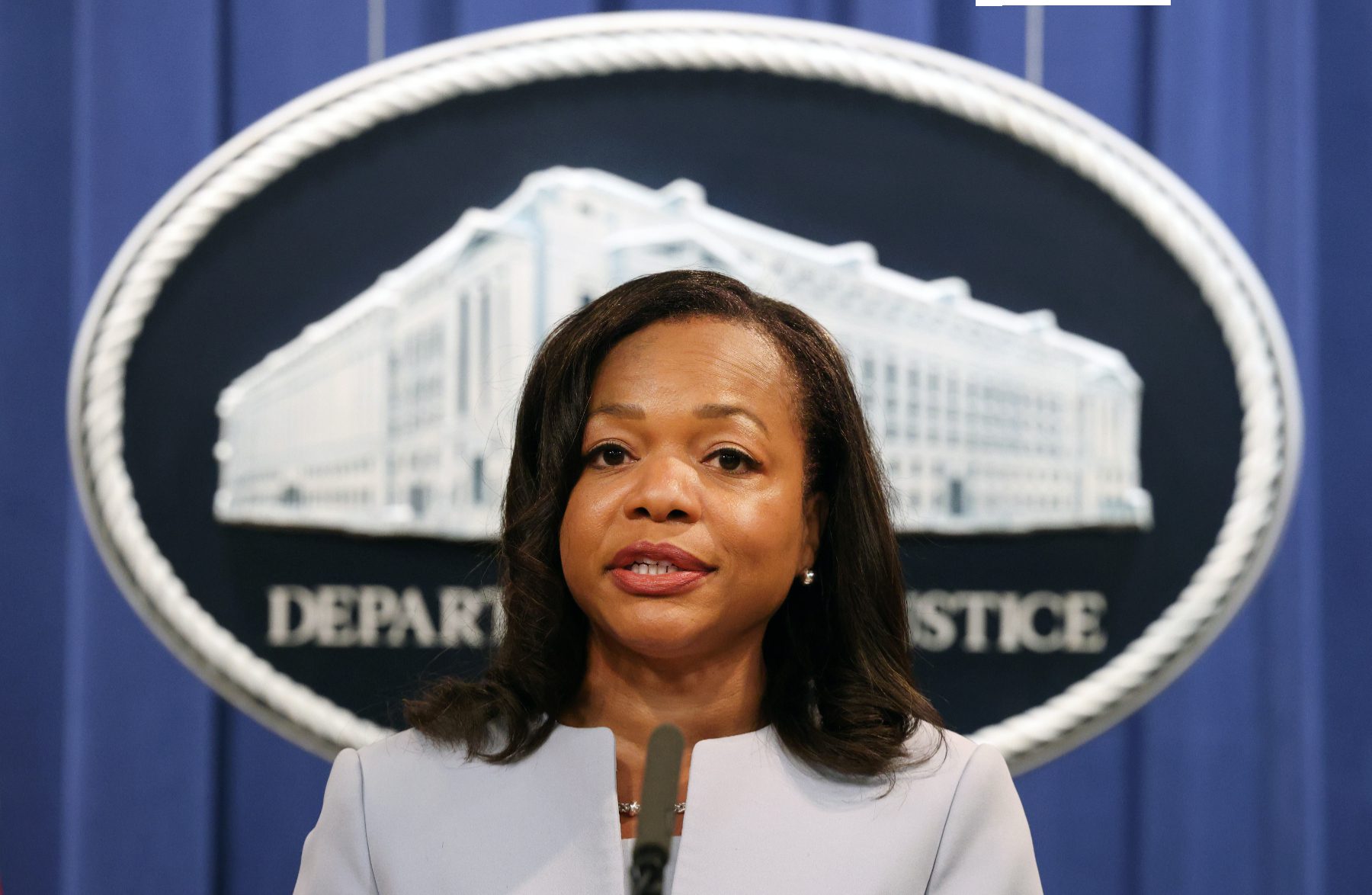The Justice Department said last week that states seeking to block transgender minors from accessing gender-affirming care may be violating federal law — and signaled that it is prepared to pursue legal action or support existing litigation against states seeking such restrictions.
In a letter to all state attorneys general, sent on Transgender Day of Visibility (TDOV), the Department of Justice (DOJ) asserted that state laws preventing trans minors from accessing gender-affirming care — by blocking parents or guardians from following a medical professional’s advice, as states like Texas and Arkansas have attempted — may infringe on the 14th Amendment’s equal protection and due process clauses.
“It’s probably the most powerful and progressive step we’ve seen on transgender rights ever from the federal government, at least today,” said Ezra Ishmael Young, who teaches constitutional law at Cornell Law School. “But the attorney general did not sign it.”
He said that while the letter, signed by Assistant Attorney General Kristen Clarke — who heads the DOJ’s civil rights division — is powerful, it would send a stronger signal with Attorney General Merrick Garland’s signature. A DOJ spokesperson said over email that agency divisions sending letters at the AAG level is a fairly typical practice.
Experts say that the letter effectively warns states that the federal government is unlikely to stand by as bills that restrict transgender minors’ gender-affirming care are signed into law.
At least 16 states have attempted to pass legislation this year barring gender-affirming care for trans youth, according to the Equality Federation. While these efforts have often failed, Arizona last week became one of only a few states that has actually signed a bill into law to restrict gender-affirming care. Arizona’s bill, which goes into effect next year, only bans surgeries for minors — procedures that are not recommended or typically administered for patients under 18.
After Texas failed last year to pass legislation that would block gender-affirming care, the state’s executive branch has taken additional efforts to criminalize such treatments. State Attorney General Ken Paxton has asked the Texas Supreme Court to allow investigations into families seeking transition-related care for their children, after the governor instructed the state’s child welfare agency to investigate such cases as child abuse. At least two Texas clinics halted gender-affirming care in response to the state’s call for investigations.
Shannon Minter, legal director of the National Center for Lesbian Rights (NCLR) who has been representing LGBTQ+ rights cases for nearly 30 years, said in an email that the letter, and its underlying message that the DOJ is prepared to take action, “is incredibly encouraging.”
To Minter, the agency’s message is clear: If states enact laws that deny trans youth medically necessary gender-affirming care, the DOJ is prepared to take action through its own litigation or to support outside litigation.
“This is extremely important — one of the strongest actions short of litigation itself that DOJ can take,” he said.
In its letter, the DOJ cites Bostock v. Clayton County, the landmark 2020 Supreme Court case that found LGBTQ+ people are protected against work discrimination by Title VII of the 1964 Civil Rights Act, to justify its position that banning gender-affirming care opens states to higher legal scrutiny under the 14th Amendment.
Heron Greenesmith, adjunct law professor at Boston University and senior research analyst at the progressive think tank Political Research Associates, said that while the agency’s letter sends a powerful message that will likely fuel legal cases against anti-trans bills, it does not necessarily mean that the agency plans to mount its own lawsuit.
To Greenesmith, the agency has, at minimum, provided fodder for civil rights groups pursuing lawsuits against anti-trans bills.
“Either way, this is great news,” they said. “It provides physical buoying underneath the legal arguments that plaintiffs are right now making that denying this care harms them.”
The agency’s letter follows a pattern of the DOJ filing statements of interest in lawsuits brought by the ACLU, Lambda Legal and other advocacy groups against states that have passed anti-trans bills. The DOJ, through spokesperson Aryele Bradford, declined to comment on what motivated the agency to release this letter now.
The letter also coincided with a slate of policy reforms announced by the Biden administration on TDOV that aim to reinforce transgender rights. LGBTQ+ advocacy groups met with congressional leadership, as well as leaders in Biden’s White House, in separate meetings last week to discuss trans rights.
Passport applications will have “X” gender markers available after April 11, enabling nonbinary and intersex people to have the document accurately reflect their identity. The Transportation Security Administration has pledged to replace its gender-based body scanners, which have led to trans people being subjected to invasive pat-downs and traumatic experiences.
The Social Security Administration also announced that trans people will not have to provide medical documentation to update their gender in their Social Security record, and the Department of Education plans, in a shift for the agency, to ask students for their gender identity when applying for federal financial aid, the White House said in a press release.
Alongside the policy rollout, six transgender and nonbinary youth visited the White House on TDOV to meet with Levine, Second Gentleman Doug Emhoff and — briefly — with Vice President Kamala Harris.
Andy Marra, executive director of the Transgender Legal Defense & Education Fund — who first reached out to the White House on March 2 to request a meeting of trans youth and families at the White House — told The 19th on TDOV that the organization is also advocating for the administration to remove blanket exclusions for transition-related health care from its federal employee health care benefits program. The organization brought the issue up in a March 29 meeting with members of Congress, including House Speaker Nancy Pelosi, Marra said.
Young noted that the DOJ’s letter is also a missed opportunity for the administration to explicitly voice support for trans adults seeking gender-affirming care, not just trans youth, as some health insurance plans still include blanket exclusions against such care.
Marra said she sees bringing trans youth to the White House as a significant moment, especially at a time when TDOV has taken on a greater depth for some trans people as a rising number of anti-trans bills have proliferated through statehouses.
One trans teenager, Harleigh Walker, 15, who lives in Alabama, told The 19th that visiting the White House with her dad on TDOV — which is also her birthday — was an important moment to bring the administration’s attention to trans people are going through in the country.
“We are being attacked, and asking for help is really important,” she said.







